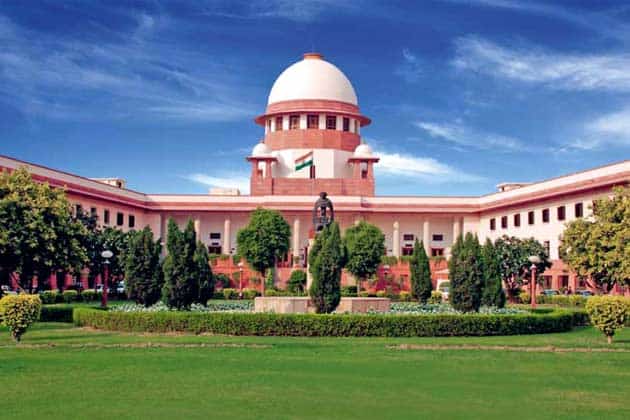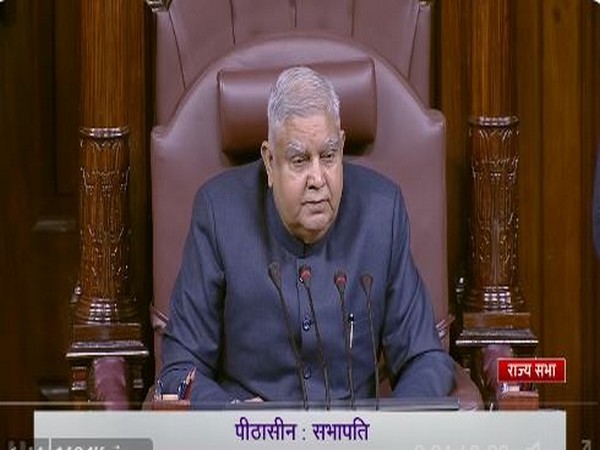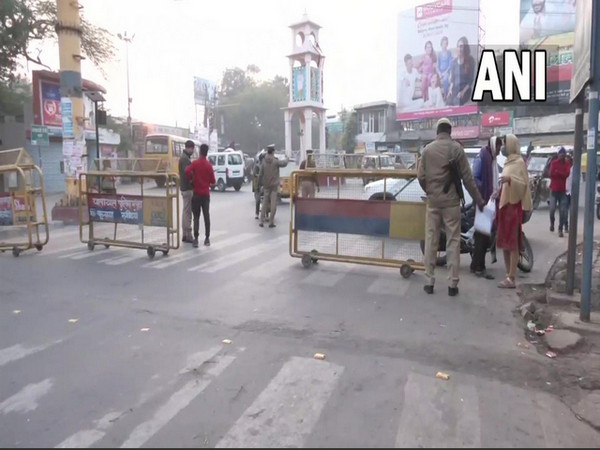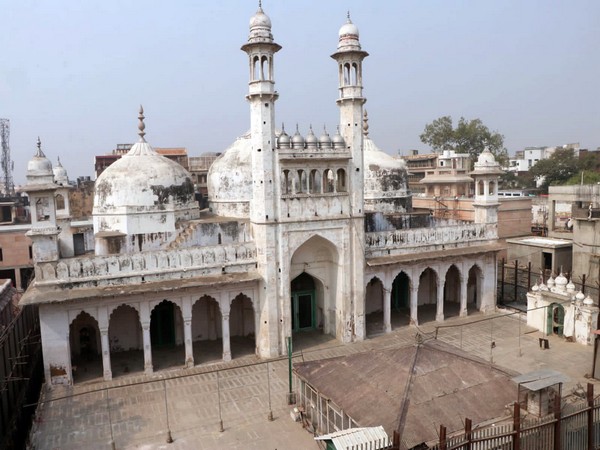Noting that the Supreme Court striking down the NJAC Act in 2015 was an unparalleled development in democratic history where a duly legitimized constitutional prescription was “judicially undone” and is “a glaring instance of severe compromise of parliamentary sovereignty and disregard of the mandate of the people”, Rajya Sabha Chairman Jagdeep Dhankar said on Wednesday that “this House, in concert with the Lok Sabha, is duty bound to address the issue”.
In his maiden speech in Rajya Sabha on the first day of the winter session of Parliament, the Vice President said democracy blossoms and flourishes when its three facets – the legislature, the judiciary, and the executive scrupulously adhere to their respective domains.
The Vice President talked of the need to catalyze a wholesome environment to promote the synergic functioning of Constitutional Institutions and emphasized the need to respect “Laxman Rekha”.
He said the Parliament in a much-needed historic step passed the 99th Constitutional Amendment Bill paving way for the National Judicial Appointment Commission (NJAC).
Dhankar said there was unprecedented support for the legislation and the two Houses passed it almost unanimously in August 2014.
“Rarely in Parliamentary democracy, there has been a such massive support to Constitutional legislation. This process fructified into a Constitutional prescription, after 16 State Assemblies out of 29 States ratified the Central Legislation; the President of India in terms of Article 111 accorded his consent on December 31, 2014,” he said.
Dhankar said the historic parliamentary mandate “was undone” by the Supreme Court on October 16, 2015 by a majority of 4:1 finding the same as not being in consonance with the judicially evolved doctrine of ‘Basic Structure’ of the Constitution.
“There is no parallel to such a development in democratic history where a duly legitimized constitutional prescription has been judicially undone. A glaring instance of severe compromise of parliamentary sovereignty and disregard of the mandate of the people of which this house and the Lok Sabha are custodians,” he said.
“We need to bear in mind that in democratic governance basic of any ‘Basic Structure’ is the prevalence of primacy of the mandate of the people reflected in the Parliament. Parliament is the exclusive and ultimate determinative of the architecture of the Constitution,” he added.
Dhankar said it is disconcerting to note that on such a momentous issue, so vital to the democratic fabric, “there has been no focus in the Parliament, now for over seven years”.
“This House, in concert with the Lok Sabha, being the custodian of the ordainment of the people, is duty bound to address the issue, and I am sure it will do so,” he said.
The Vice President said the sublimity of the doctrine of separation of powers, is realized when the legislature, judiciary, and executive optimally function in tandem and togetherness, meticulously ensuring scrupulous adherence to the respective jurisdictional domain.
“Any incursion by one, howsoever subtle, in the domain of other, has the potential to upset the governance apple cart. We are indeed faced with this grim reality of frequent incursions. This house is eminently positioned to take affirmative steps to bring about congeniality amongst these wings of governance. I am sure you all will reflect and engage in a way forward stance,” he said.
Dhankar said parliamentary sovereignty is inviolable in any democracy and members have taken oaths to preserve it.
“Essence of democracy lies in the prevalence of the ordainment of the people reflected through the legitimized platform.”
He said the power of parliament of the day to act in exercise of its constituent power to “amend by way of addition, variation or repeal any provision of this Constitution in accordance with the procedure” is unqualified and supreme, not amenable to executive attention or judicial intervention except for the purpose of deciding any case involving a substantial question of law as to the interpretation of the Constitution envisaged in article 145(3) of the Constitution.
The Vice President said using this Constitutional power to amend, Parliament effected wholesome structural governance changes to further spinally strengthen democracy. This has been by way of incorporation of Part IX, IX A, and IX B in the Constitution providing a comprehensive mechanism for Panchayati Raj, Municipalities, and Co-operative Societies, he said.
Dhankar said authorities in constitutional positions in any institution are required to exemplify their conduct by high standards of propriety, dignity, and decorum.
“Time for all constitutional institutions to reflect and give quietus to public display of adversarially challenging stance, trading or exchange of advisories emanating from these platforms. I urge the Members of the House to proactively catalyze the evolution of wholesome cordial ecosystem ending this aberration,” he said.
“It is institutional seamless connection marked with mutual trust and respect that generates an ecosystem best suited for serving the nation. This House needs to catalyze this wholesome environment to promote synergic functioning of Constitutional Institutions, emphasizing the need to respect Laxman Rekha,” he added.
Dhankar said he looked forward to contributing to the growth trajectory of the largest vibrant democracy in the world and vindicating its trust and confidence.
He said the terms ‘Upper House’ or ‘House of Elders’ though not part of the official glossary, amply reflect the uniquely significant importance of this institution.
“Nation justifiably expects the House of Elders to take the decisive directional lead in reaffirming and enhancing the core values of the Republic and set up the traditions of parliamentary democracy exemplifying the highest deliberative emulative standards,” he said.
“Today, as we are in Amrit Kaal, we cherish one of the world’s finest constitutions as our own. Members of the Constituent Assembly were enormously talented with impeccable credentials and immense experience. The Constituent Assembly, given the scenario then, was as representative as was practicable,” he added.
Dhankar said with each election there has been progressively authentic enhancement in the representation gradient. “Presently the parliament reflects with authenticity the mandate and aspirations of the people as never before.”
He said the Constituent Assembly addressed sensitive, complex and critical issues, exemplifying sublimity engaging in dialogue, discussions, deliberations, and debate marked with a cooperative and consensual attitude.
“Diverse issues were traversed without there being any disruptions or rancor. Obstruction and Disruption of proceedings as parliamentary practice or option are antithetical to democratic values. The contemporaneous scenario on this count is concerning and makes it imperative for us to follow the high standards set in the Constituent Assembly. We need to be cognizant of severe public discomfort and disillusionment at lack of decorum in the temple of democracy,” he said.
Referring to his visit to Cambodia for India-ASEAN and East Asia Summits and FIFA World Cup Inaugural Ceremony in Qatar, Dhankar said he was sharing with members his “deep sense of pride and satisfaction of the level of respect India commands amongst world leaders and hope our growth trajectory generates for global peace and prosperity”. (ANI)
Read More: http://13.232.95.176/






